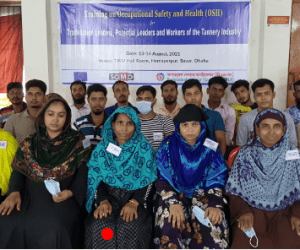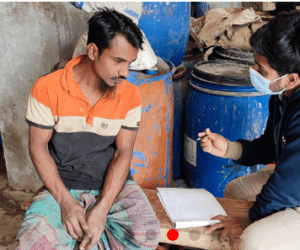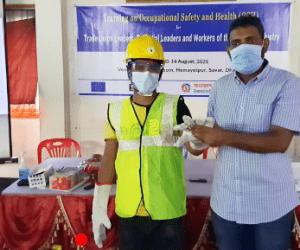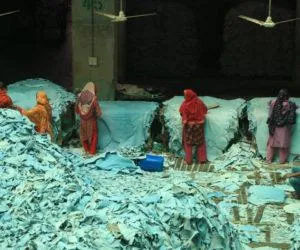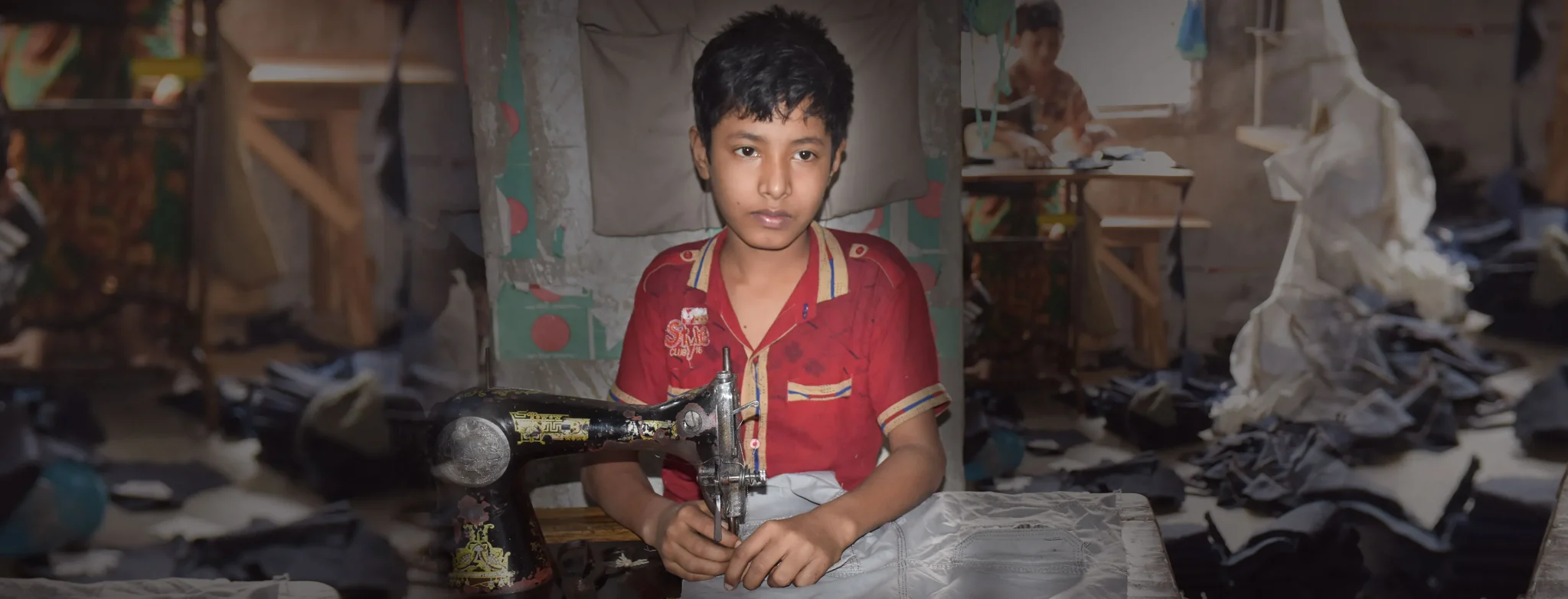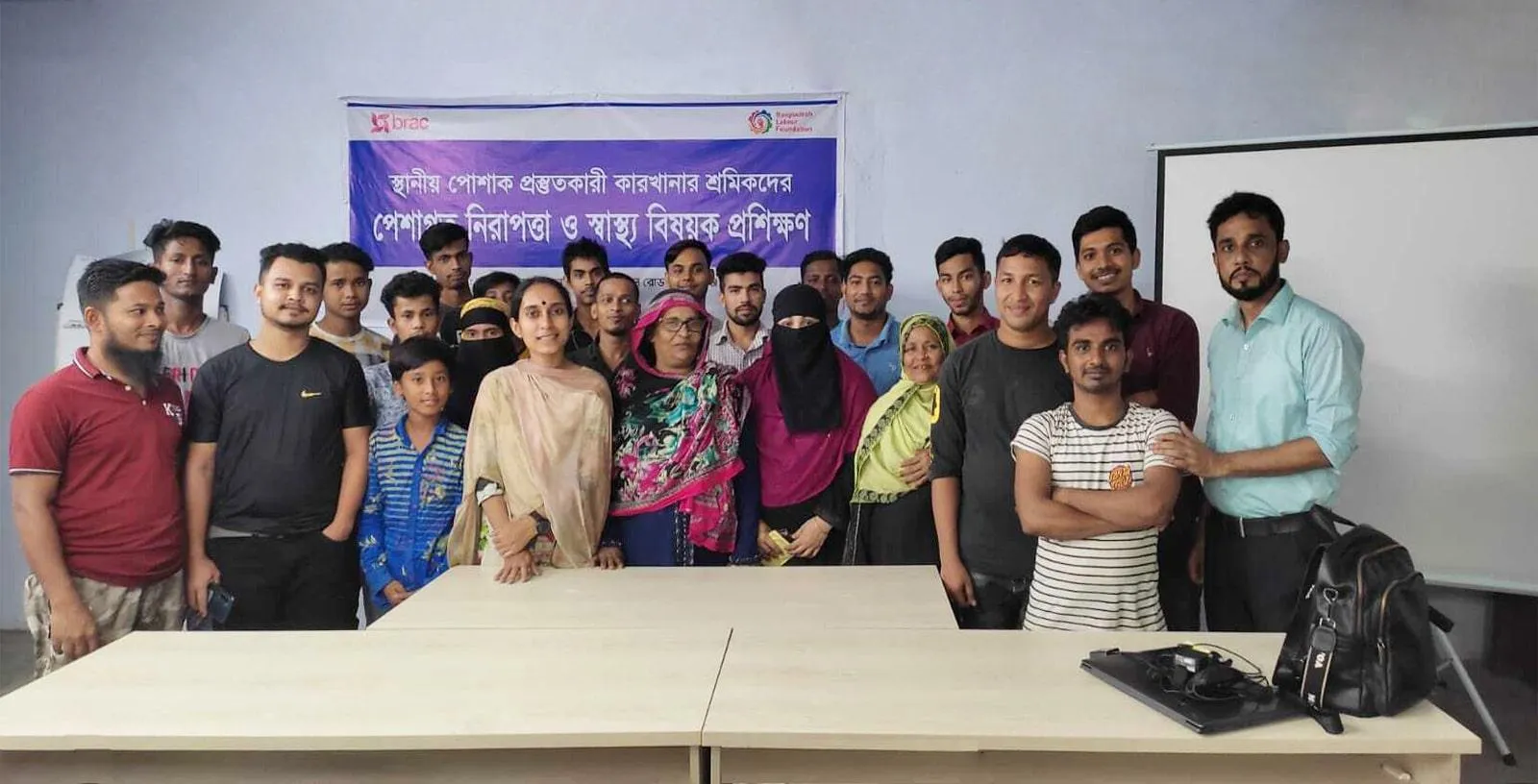Decent leather- Labour standards for workers in the leather-based garment, footwear and accessories value chain
Overview
South Asia is an important hub for the production of leather garments, footwear and accessories across the world. Approximately 2.5 million, 500,000, and 130,000 people work in the leather value chain of India, Pakistan and Bangladesh. It includes tanneries, small leather workshops, home-based units, large and small garments and leather goods factories. However, the rights of leather workers are systematically violated, and workers are deprived of the fundamental rights of freedom of association and collective bargaining (CB). They have to undergo lower wages, severe OSH risks (including exposure to toxic chemicals and unsafe machinery), forced overtime, discrimination, lack of social security and child labour. BLF has implemented this project in TIE, Savar, since April 2020 with the support of the Centre for Research on Multinational Corporations (SOMO).
Bangladesh Labour Foundation (BLF) is part of the Together for Decent leather, a three-year programme from April 2020 to March 2023 carried out by a European-Asian consortium of seven civil society organizations from the Netherlands, Germany, Austria, India, Pakistan and Bangladesh. Our goal is to improve working conditions and to reduce labour rights abuses, focusing on leather product production hubs in Bangladesh
Objectives
The overall objective of the Decent Leather project is to improve working conditions and reduce labour rights abuses by promoting adherence to international labour standards (ILS) and corporate social responsibility (CSR) in value chains for leather-based garments, footwear, and accessories. Along with BLF, this project’s objective is an increased commitment by the private sector and government stakeholders to fulfill their human rights due to diligence obligations, focusing on production hubs. This project particularly focused at Savar, Bangladesh where high concentrations of tanneries and export-oriented factories are found. Subcontracting of work through a chain of intermediaries, from large manufacturers to leather workshops and home-based production units (i.e., second and third-tier suppliers), will be looked into
Project Components
Capacity Building of Workers Research & Study Lobby & Advocacy
Location
TIE, Savar
Donor
Centre for Research on Multinational Corporations (SOMO) Together for Decent leather
Duration
April 2020– March 2023
Stakeholders: Workers, Trade Unions, Owners & Owners Associations, MoLE, MoI, MoC, DIFE & DoL, BSCIC, International Buyers.
Key Outcomes: A Total number of 8 training sessions organized (focusing on Study Circle Leadership, Collective Bargaining and Negotiation, Occupational Safety and Health (OSH), and Gender-based Violence (GBV). 3 training modules were developed (OSH, Collective Bargaining and Negotiation, and Study Circle Leadership). Additionally, 30 study circle groups were formed, 4 factories ensured safe chemical storage and 5 Safety Committees were formed in the 5 factories with the facilitation of BLF

